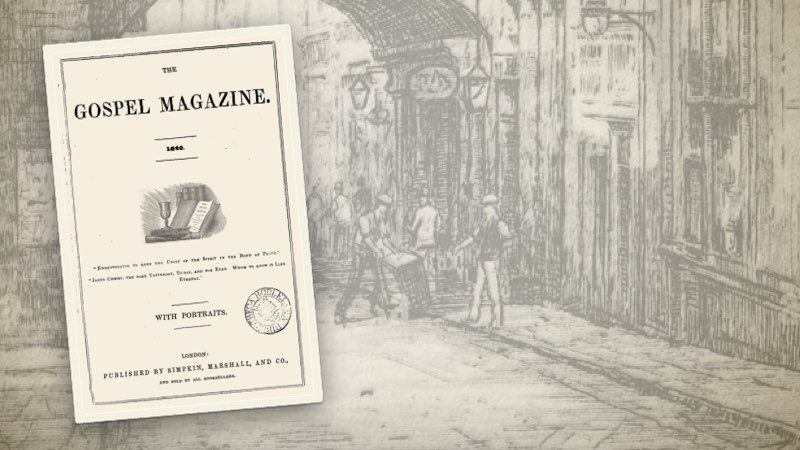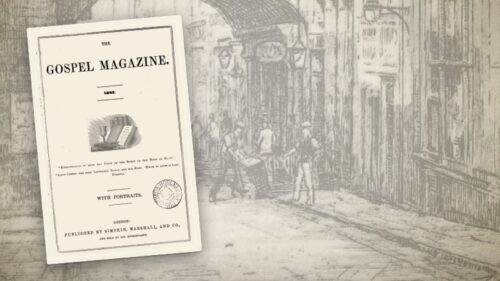The Gospel Magazine
A High-Calvinist Magazine “The Gospel Magazine And Protestant Beacon” started in 1766, its editors were mainly High-Calvinist Anglicans. Its first set of articles “aimed, through divine assistance, to make the holy scriptures the standard of our Divinity: The doctrines in our Magazines were confirmed by the Protestant churches at the Reformation, and by the Articles of the Church of England, and also by the Confession of Faith and Catechisms of the judicious and pious Assembly of Divine at Westminster: And, we hope, by the experience of true Christians and found believers in all ages of the Church. The external knowledge of the Scriptures of principles of our holy Religion is not all that is necessary; for the Spirit of God only can make them powerful and efficacious upon our hearts; but it is a great advantage to understand the nature of the Covenant of works and the Covenant of grace, wherein the fall and ruin of man by the first Adam is discovered, and the only way of recovery, by flying for refuge to Jesus Christ, the Second Adam, the Mediator of the New Covenant. All orthodox doctrines are grounded upon right apprehension of these two Covenants.” Among the editors of the magazine were Augustus Toplady (1740-1778) and David Doudney (1811–1893). Although not a Strict Baptist magazine, its gospel teachings promoted high views of sovereign grace, attracting the Strict Baptists to its pages.
-
The Two Preachers
The Moral Preacher The smooth-tongu'd, moral preacher thus begins:— Repent, believe, leave off your former sins; Attend the worship of the temple true, And see you give to ev'ry man his due. Bestow your alms likewise when you see need, The naked clothe, the hapless orphan feed. And when you fail (for all come short sometimes), Repent again; be sorry for your crimes. Thus if from day to day you ever live, Depend upon it, God will you forgive. Mind not what preachers do, but what they say; And safe to heav'n this will your souls convey.
-
Notional Calvinism Versus Experimental Calvinism
Notional Calvinism is a plant of common growth in this our day of widely extended profession, whereas experimental Calvinism is just as scarce as ever it was. The former, like our present popular mode of travelling may be very perfect in machinery, but if the fire be wanting it is worse than useless. A bright morning ushered in the Sabbath of—. It was the anniversary of a place of worship, where the truth of God was sown in sorrow and watered with tears. The few who frequented it assembled at the usual hour, and the gathering was small. Numbers, however, have nothing to do with the operations of God’s Spirit, any more than instruments. It is nothing with Him to help, whether with many, or…


